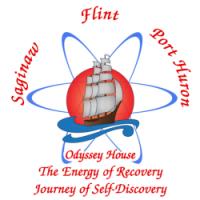Taylor Psychological Clinic
Drug Rehab Center in Flint, Michigan
- Mental Health
- Dual Diagnosis
Taylor Psychological Clinic provides mental health, substance abuse, and addiction treatment services in Flint, Michigan, with a focus on evidence-based approaches, specialized services for addiction, and accreditation from various organizations to ensure quality care.
About This Michigan Facility
Taylor Psychological Clinic specializes in providing mental health, substance abuse, and addiction treatment services in Flint, Michigan. They are staffed by highly trained and experienced psychologists and counselors who are committed to creating a safe and supportive healing environment for their clients. Their services include individual and group therapy, psychoeducational programs, and residential services for those dealing with substance abuse and dependency issues. They also provide intensive outpatient rehabilitation programs, family and couples counseling, and court referral services.
Taylor Psychological Clinic offers specialized services for those dealing with addiction and substance abuse. Their services focus on the psychological, emotional, and behavioral aspects of substance abuse, which can help people to overcome addiction and lead healthier, more productive lives. They use evidence-based approaches, such as cognitive-behavioral therapy, group therapy, and 12-step facilitation to assist in recovery. They also provide relapse prevention and aftercare programs to help clients stay engaged in their healing journey.
In addition to the services provided, Taylor Psychological Clinic also has accreditations from several organizations, such as the Joint Commission, the National Committee for Quality Assurance, and the Substance Abuse Mental Health Services Administration. They also offer credentialing services for those who are seeking licensure to practice substance abuse counseling in the State of Michigan. Taylor Psychological Clinic is committed to providing quality care and services to those who are dealing with addiction and substance abuse issues.
Genders
Ages
Modality
Additional
Conditions and Issues Treated
When addiction and psychiatric issues co-occur, the addict’s recovery is more successful when both conditions are treated. A dual diagnosis refers to a condition in which the patient is diagnosed with two health issues: addiction and bipolar disorder.
Usually, dual diagnosis sufferers are prescribed a combination of treatments for each condition. The most common therapies are psychotherapy, behavioral therapy, spiritual counseling, 12-step programs, and medication management.
Psychiatric conditions are an obstacle to recovery because they can create roadblocks to a healthy lifestyle. Drugs and alcohol may be used as a means of self-medication, which can have dangerous consequences. Over time, addicts build up a tolerance and suffer withdrawal symptoms when drug use is stopped.
With the proper treatment, dual diagnosis sufferers can overcome their conditions and achieve lasting sobriety.
Levels of Care Offered at Taylor Psychological Clinic
This center offers a variety of custom treatment tailored to individual recovery. Currently available are Dual-Diagnosis, Outpatient, with additional therapies available as listed below.
Individuals struggling with drug addictions can get help from several treatment options, including inpatient and outpatient programs. Outpatient drug treatment programs can also provide patients with different levels of care, usually depending on the patient’s degree of addiction.
At an outpatient program in Flint, a patient will attend a recovery program during the day and return home in the evening. Suppose a patient is struggling with drug addiction. In that case, an outpatient program can serve as an effective transition point during the recovery process.
Therapies & Programs
Individual therapy is a critical component of addiction recovery. It allows the patients to go deep into their core issues and discover how to handle those problems better. Therapy can be conducted in individual sessions as well as group settings. In individual therapy for addiction, the patient meets with their therapist one-on-one to focus on the underlying issues. This allows patients to open up and discuss personal topics they may not feel comfortable discussing in a group setting. This type of therapy can help develop solutions specific to each patient, which helps speed up the recovery process.
Couples therapy is beneficial for couples in which at least one partner has a substance use disorder. This type of therapy can help partners improve communication skills, which is an important factor in a healthy relationship. It can also help partners better understand one another so they have a greater understanding of how the other partner may be feeling.
Benefits of couples therapy include:
- Improvement in communication skills
- Increased understanding of the dynamics within a relationship
- Increased sense of support and trust in the relationship
- Better teamwork between partners/increased willingness to listen and work together
- Enhanced tolerance of each other’s shortcomings
- Improved ability to have open, honest communication with each other
Family therapy is a crucial part of drug treatment and getting sober. It is one of the most effective ways to help addicts stay on the path to long-term sobriety. When a drug addict decides that they want to try and get sober, it takes the support of every person they love to succeed. It can be incredibly difficult for loved ones to watch an addict go through the pain and suffering of withdrawal, but by being there with them and supporting them, they can help to make sure that the addiction never returns.
One of the most important parts of family therapy is the relapse prevention plan. During treatment, therapists and doctors will often sit down with the addict and their family to develop a plan in case the addict ever feels like they want to use again. This plan should involve steps the addict and family can take together to prevent them from relapsing in the future. An addict’s family can play a vital part in helping them to avoid relapse because they can spot the warning signs and help them get back on track before it becomes too much of a problem.
Group therapy helps prevent addicts from feeling isolated or unique in their situation by offering a sense of comfort and fellowship. It also creates a forum for addicts to build their support systems and learn from each other. The group therapy sessions at Taylor Psychological Clinic occur in a group setting rather than one-on-one to create a safer, controlled environment where addicts feel comfortable.
Cognitive Behavioral Therapy (CBT) is a common therapeutic approach to help drug addicts. It teaches addicts new ways of thinking and behaving so that they can avoid relapse. There are several forms of CBT used in drug rehabilitation centers.
Cognitive Restructuring helps addicts identify faulty, negative thinking so that they can work together with the therapist to find healthier ways of thinking, resulting in better decision-making.
Cognitive Behavioral Therapy for Addiction uses the principles of CBT to help treat addiction. It focuses on specific aspects of each person’s thinking, feeling, physiology, and behavior. It aims to identify specific problems in these areas and create a personalized treatment strategy.
Patient Experience
Experiential Therapy at Taylor Psychological Clinic
Experiential Therapy is a new approach to addiction treatment. Addiction-related psychological issues like depression and anxiety are addressed through physical activities.
Experiential Therapy can help those who have struggled with past traumas or life decisions like drug use. It allows people to gain new perspectives on their behavior patterns by recreating experiences in healthy ways rather than continuing old habits that may no longer serve them well.
Payment Options Accepted
For specific insurance or payment methods please contact us.
Is your insurance accepted?
Ask an expert, call (888) 674-0062
Additional Details
Specifics, location, and helpful extra information.
Flint, Michigan 48503 Phone Number(810) 232-8466 Meta DetailsUpdated November 25, 2023
Staff Verified
Patient Reviews
There are no reviews yet. Be the first one to write one.
Flint, Michigan Addiction Information
Michigan has the second-highest rate of drug and alcohol abuse in the nation. Heroin is linked to more than 50% of the state's hepatitis C cases. Marijuana is the drug most often associated with crimes in Michigan, followed by methamphetamines. Opioids alone are responsible for almost 20% of all drug overdose deaths in Michigan.
Flint, Michigan has a high rate of drug addiction and abuse. Drug overdoses are the leading cause of death for people under the age of 50. In 2017, there were 1,568 drug-related deaths in Flint, Michigan. Drug addiction can lead to crime, violence, and other negative behaviors. There are many treatment options available in Flint. Some of the most common include inpatient and outpatient rehab programs, 12-step meetings, and therapy.
Treatment in Nearby Cities
- Alpena, MI (141.4 mi.)
- Kingsford, MI (289.3 mi.)
- Bessemer, MI (393.6 mi.)
- Saint Joseph, MI (156.9 mi.)
- Wakefield, MI (388.9 mi.)
Centers near Taylor Psychological Clinic




The facility name, logo and brand are the property and registered trademarks of Taylor Psychological Clinic, and are being used for identification and informational purposes only. Use of these names, logos and brands shall not imply endorsement. RehabNow.org is not affiliated with or sponsored by Taylor Psychological Clinic.


